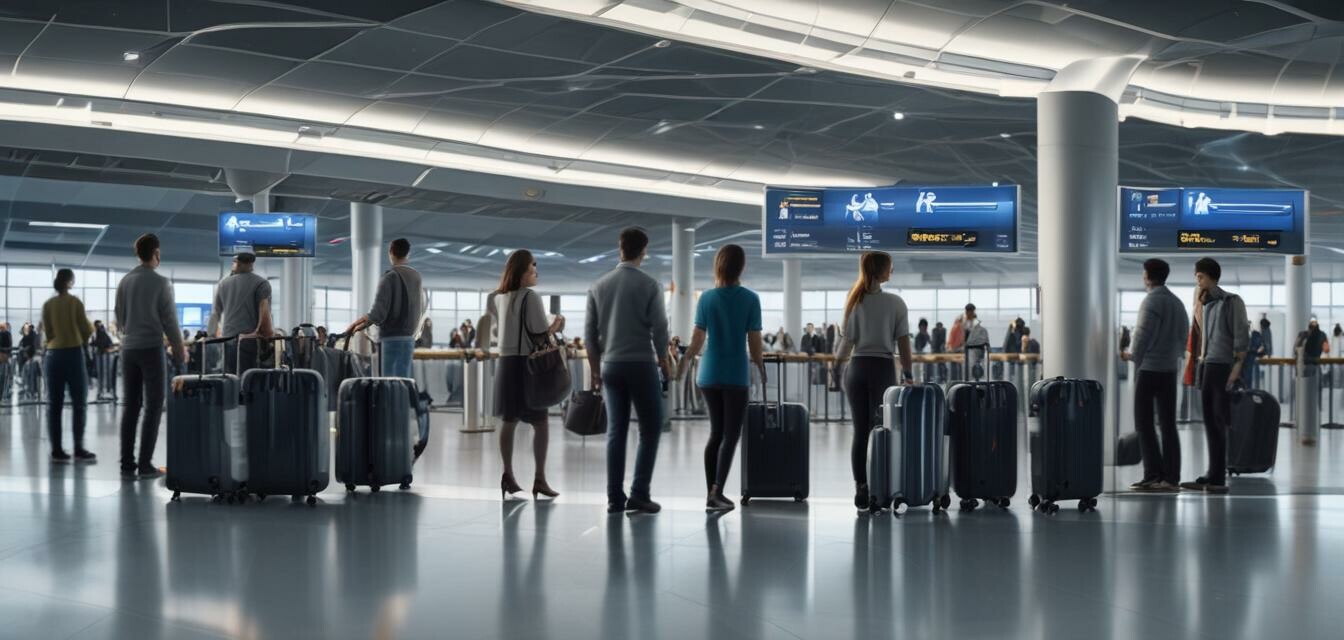
How Airlines are Adapting to Smart Luggage
Key takeaways
- Smart luggage features GPS tracking to enhance security and convenience.
- Airlines are updating policies to accommodate smart luggage technologies.
- Improved customer service is a focus as more travelers invest in smart luggage.
- Understanding airline regulations is essential for smarter travel planning.
- Future innovations are on the horizon, promising even more convenience.
The travel industry is witnessing a remarkable transformation with the advent of smart luggage. Equipped with GPS tracking, integrated scales, and charging ports, these bags are changing how travelers interact with their possessions. In response, airlines are re-evaluating their policies and services to accommodate these innovative travel companions.
What is smart luggage?
Smart luggage refers to travel bags that come with advanced technological features, allowing travelers to track their belongings through GPS technology. These innovations provide peace of mind during busy travel, ensuring that luggage can be monitored from check-in to arrival.
Key features of smart luggage
- GPS Tracking: Allows travelers to monitor their luggage location in real-time.
- Integrated Scales: Prevents overpacking by letting users check the weight before reaching the airport.
- USB Ports: Enables travelers to charge their devices on the go.
Airlines adapting to the smart luggage trend
As the demand for smart luggage grows, airlines are initiating changes to their traditional operations. Here’s a closer look at some major adaptations happening in the airline industry:
| Airline | Adaptation | Details |
|---|---|---|
| Airline A | Policy revision | Allows passengers to use smart luggage with embedded batteries, provided they meet safety regulations. |
| Airline B | Technology integration | Incorporates a tracking system for smart luggage to streamline baggage handling at airports. |
| Airline C | Enhanced customer support | Staff trained to assist with technology-related inquiries and to manage smart luggage operations. |
Challenges faced by airlines
While embracing technological advancements, airlines face several challenges:
- Safety Regulations: Ensuring all smart luggage complies with airline safety guidelines concerning battery usage.
- Cost of Technology: The need to invest in new systems and training for staff can be a hurdle.
- Customer Education: Travelers must be informed about the appropriate use of smart luggage features.
Current trends in the smart luggage market
The rise of smart luggage has influenced broader trends in travel. Some notable trends include:
- Increased focus on sustainability, as manufacturers develop eco-friendly materials for luggage.
- Greater emphasis on connectivity, allowing luggage to interact with airline apps for real-time updates.
- The watchful eye on customer data privacy, as more devices are interconnected.
Regulatory considerations
Travelers should be aware of airline regulations surrounding smart luggage. Key regulations include:
- Battery restrictions: Some airlines limit the use of lithium-ion batteries in luggage.
- Weight limits: Smart luggage may add additional weight, impacting the overall weight restrictions.
- Check-in procedures: Understand the new check-in procedures specific to smart luggage.
Transitioning to smart luggage
For travelers considering the jump to smart luggage, here are some tips:
Tips for beginners
- Research your airline's policies on smart luggage before purchase.
- Choose a luggage brand with robust customer service and warranty options.
- Always keep the luggage updated with the latest firmware for compatibility.
The future of smart luggage
The future holds exciting possibilities for smart luggage. With ongoing technological advancements, we expect more airlines to collaborate with tech companies, leading to a highly interconnected travel experience.
Pros
- Increased security through real-time tracking.
- Easier to manage luggage weight and size before travel.
- Enhanced travel experience through connectivity features.
Cons
- Higher cost compared to traditional luggage.
- Potential issues with battery regulations and compliance.
- Technical failures or bugs can disrupt functionality.
Conclusion
The adaptation of airlines to the rise of smart luggage signifies a groundbreaking shift in the travel industry. With ongoing innovations in luggage technology, travelers can look forward to enhanced convenience and security for their belongings. Keeping informed about airline policies and trends in smart luggage can help ensure a seamless travel experience.
For more insights on travel gear, check out our articles on Carry-On Luggage and Buying Guides. Stay ahead in the travel game!